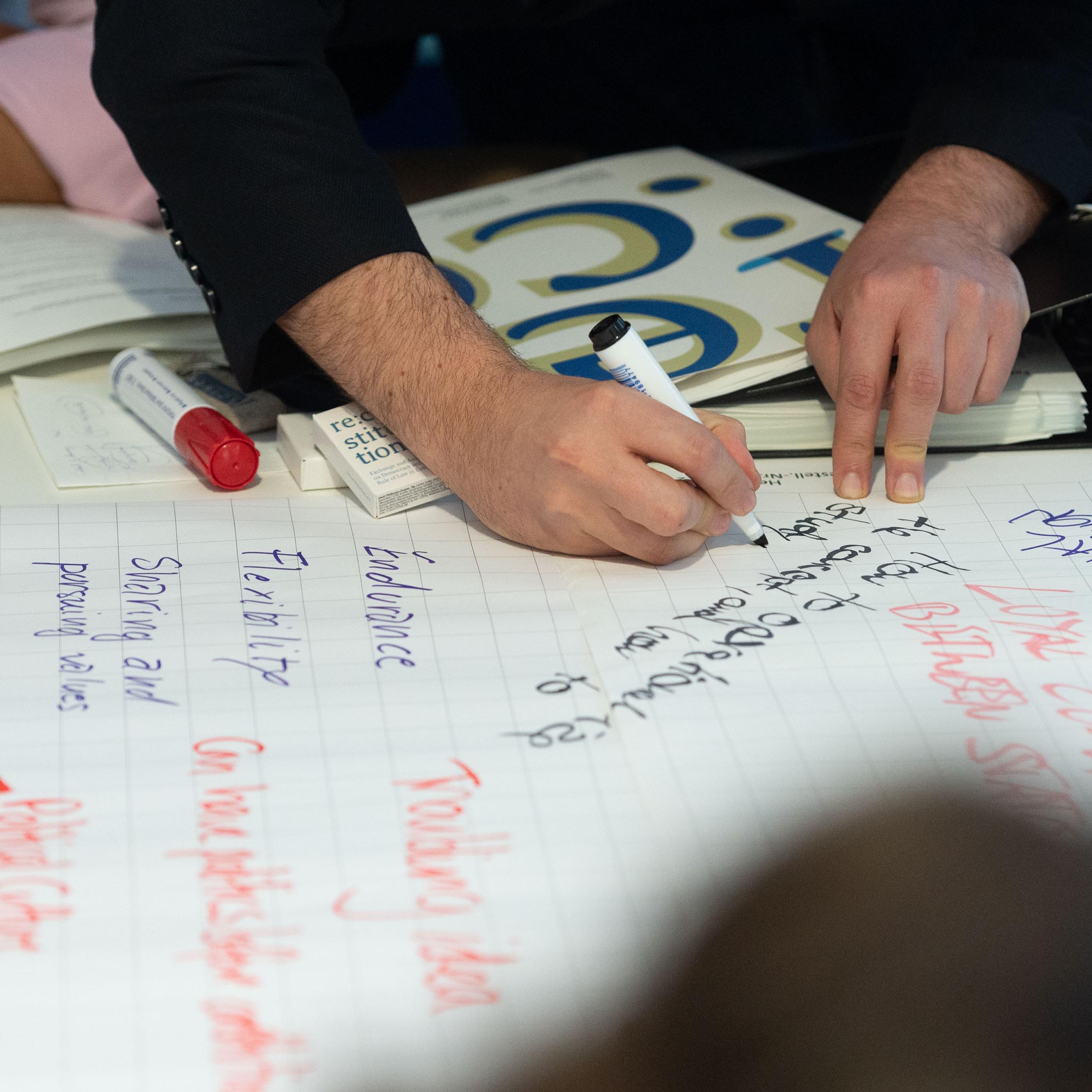re:constitution invites applications for 20 fellowships for the upcoming academic year from October 2020 to July 2021. The programme aims to provide for a high-quality and flexible environment of exchange and debate among scholars, legal practitioners and journalists from across Europe. Fellows will pursue their own, topic-related projects and will become part of a European exchange network. For more information on the re:constitution programme, please visit reconstitution.eu.
YOU ARE
in the early stages of your career as a
SCHOLAR holding a PhD* in
- Law/Legal Studies
- Political sciences, social sciences, philosophy or other neighbouring disciplines (focusing on legal issues and/or the rule of law in Europe)
OR
PRACTITIONER
- Legal expert (i.e. judge or court employee, in NGOs,…)
- Government official
- Researcher working on questions on the rule of law and/or democracy in the EU
- Journalist reporting on the rule of law and/or democracy in the EU
Eligible for the fellowship are residents of the European Union or the United Kingdom, non-EU EEA countries or Switzerland .
*Your PhD project should have been completed no more than 10 years ago. Scholars who are still working on their project may be eligible if their PhD is close to completion. For practitioners, a PhD is not required.
YOUR MOTIVATION
- You are interested in current developments and challenges regarding democracy and the rule of law in Europe.
- You are looking for new ways to work on your own project within the context of democracy and the rule of law in Europe
- You want to be part of a group of fellows to debate and learn from each other.
- You are keen to pursue new work opportunities at institutions in other EU countries.
- You want to engage in a multi-faceted exchange about questions on democracy and the rule of law in Europe with junior and senior experts from all over Europe, from different sectors and from across the political spectrum.
OUR OFFER
Independence
- re:constitution fellowships for one academic year, starting from 1st October 2020 until 31 July 2021, offering the freedom to pursue your own project in a topic of your choice, such as an academic article, essay, policy paper, book, report, podcast, feature story, piece of analysis, etc.
- For non-academic experts, a fellowship could be a form of sabbatical.
- For the first cohort of re:constitution fellows and their projects please visit: https://www.reconstitution.eu/fellows.html.
Exchange and Debate
- Personal exchange meetings of 3-5 days in EU countries: The first meeting will take place from 27 to 30 October 2020 in Berlin and Frankfurt/Oder, the second and third in February and June 2021 in other EU member states. The curriculum of these meetings will be developed jointly by the fellows and in consultation with the coordinator of the programme.
- Opportunities to attend and organise events with emphasis on specific aspects and topics of the programme.
Mobility
- Mobility period of six months, the so-called ‛stage’ at institutions of scholarship and practice of your choice in another EU country than your residential one; the ‘stage’ should be divided between a research institution and an institution of legal practice.
- Monthly stipend of €2.500 during the ‛stage’ (plus supplements depending on personal circumstances).
Network
- Access to a European network of scholars and practitioners who are interested in and working on questions on the current state of democracy and the rule of law in Europe.
Support
- Digital exchange formats for the fellows: The exchange between the fellows will be supported by a secure digital working space provided by the Forum Transregionale Studien.
YOUR APPLICATION
Please submit your application via our secure online application platform by 24 May 2020:
https://application.trafo-berlin.de/
Applications by email will not be considered. If you have questions, please do not hesitate to contact the programme coordination team: reconstitution(at)trafo-berlin.de
You will be asked to prepare and upload as part of your application:
- Curriculum vitae including publications (2-3 pages),
- Project outline (2-3 pages),
- Short abstract of your project (max. 300 words),
- Two references (university faculty members or practitioners in a field relevant to the applicant’s project) who can serve as referees (no letters of recommendation required),
- Potential host institutions (your preferred institutions of research or practice in EU member states to spend part of your ‛stage’, ideally including an indication of preferred dates and/or existing personal contacts).
The working language of re:constitution is English.
The diversity of our society should also be reflected in the fellowships. We therefore welcome applicants regardless of their cultural and social background, age, religion, world view, disabilities or sexual identity.
The applications will be evaluated by the re:constitution Collegium of experts from different European countries. All applicants will be informed of the outcome of the selection process by during July.
We are monitoring the current developments regarding Coronavirus closely, but for now we are hoping to go ahead with the fellowships as announced in this call.


